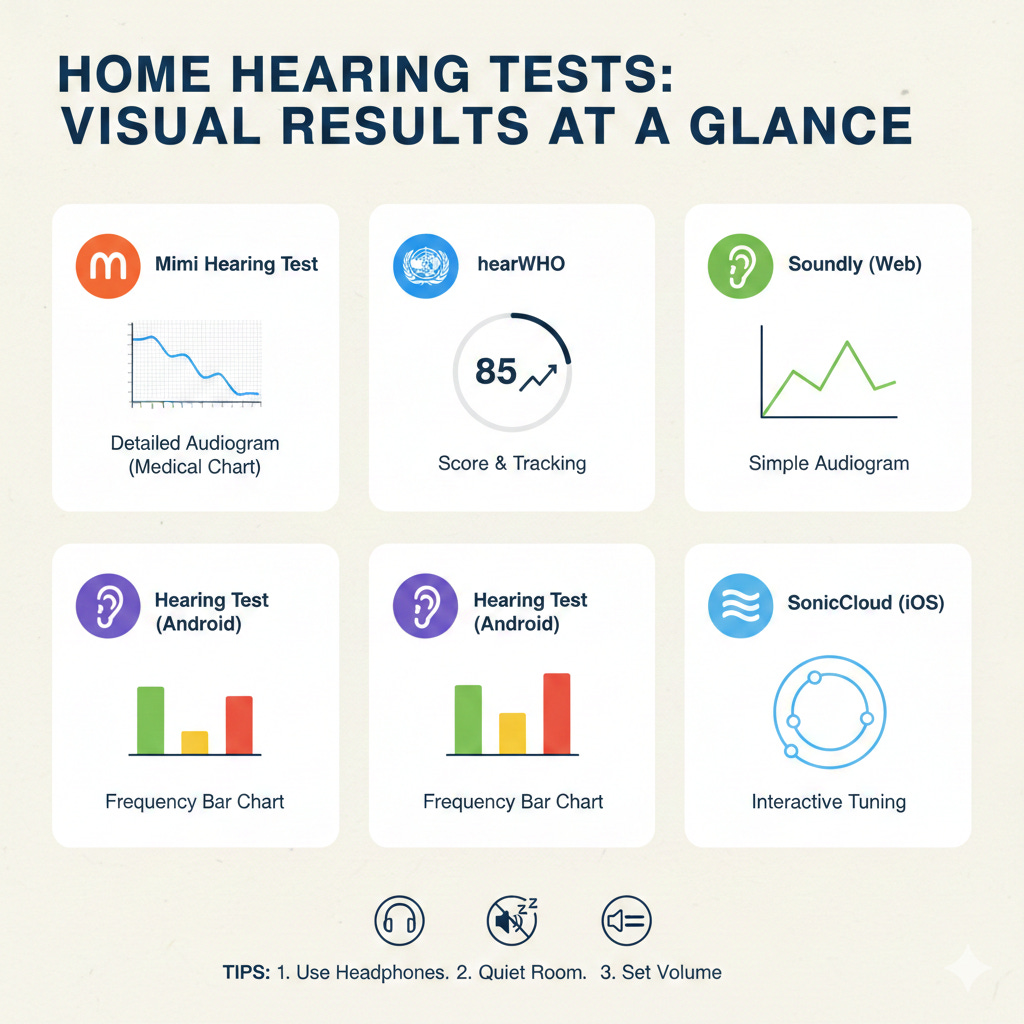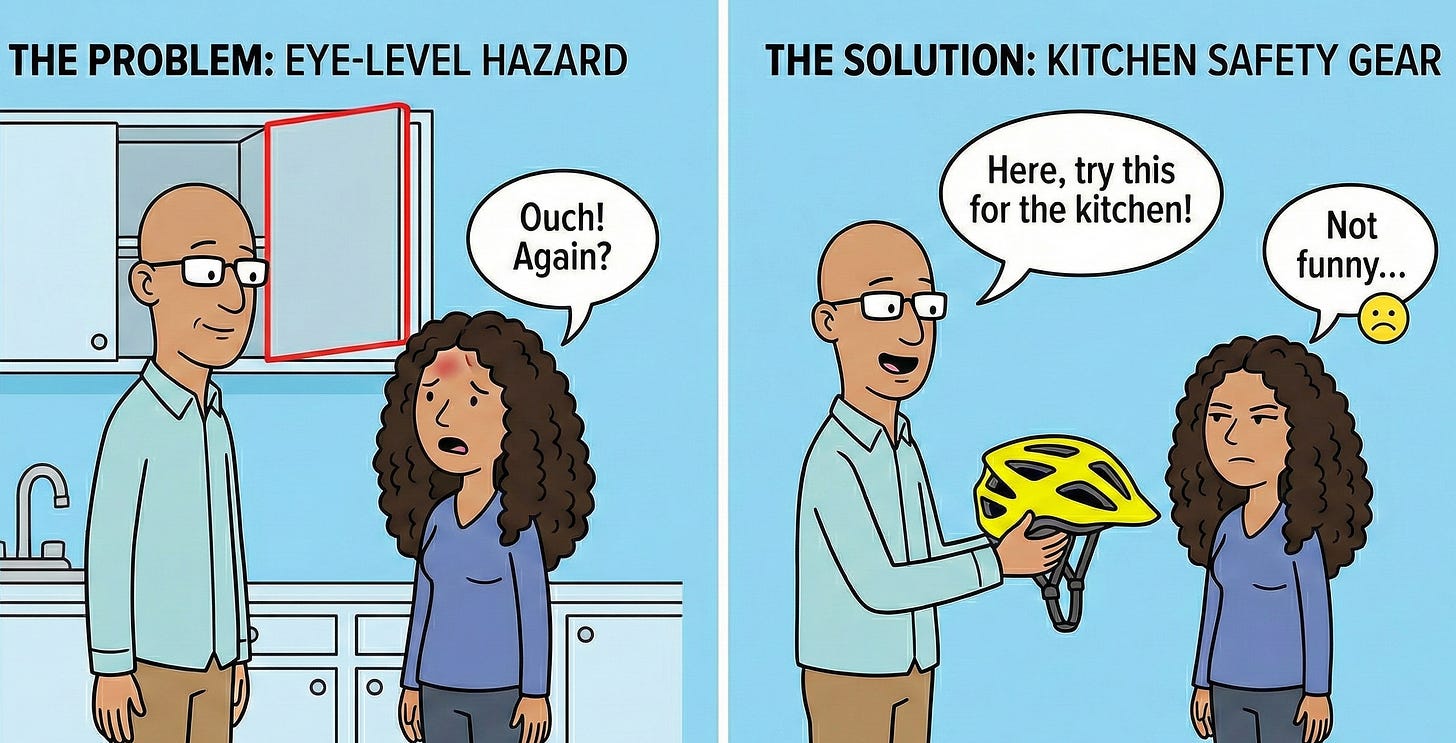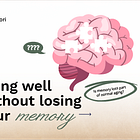Preventing Dementia - Evidence-Based Changes to Make Today
50% of us can prevent dementia using just a few of this list of 14 strategies - according to the most solid research we have so far.
Do you have a family member with dementia? Do you have one of the common conditions associated with increased risk of dementia? It’s one of the more preventable diseases, according to some of the most well-respected scientists in the field.
UPDATED: December 5th, 2025
Welcome to the Healthy Aging Newsletter, a free publication translating trustworthy medical research into simple habits to age well, free of chronic disease. I’m Dr. Ashori, a family medicine doctor turned health coach. What to Do Now (Age 30-50)
The Real Evidence According to Science - 2025
It’s rare to have so many notable, excellent scientists come together without much industry sponsorship to write such a comprehensive prevention strategy for dementia published in The Lancet.
Remember, your particular risk is different from another. Understanding that will help you better prioritize the most effective steps to take to lower your risk.
In descending order, this is what’s been shown on population-level data to help prevent up to 50% of dementia.
1. Hearing Loss
Get screened for hearing problems early to help prevent dementia. With headphones, loud environments, and metabolic problems, we need all the brain stimulation we can get, including the one from our hearing. And, of course, reduce excess noise to avoid such issues in the future.
The parts of the brain stimulated by healthy sounds is critical for maintaining healthy executive function. We need all parts of the brain to function well to help prevent dementia.
Try this: Download a hearing test app - they are free. If abnormal, get a proper hearing test. Sometimes it’s just wax but that’s still a problem.
2. LDL Cholesterol
Know your fasting lipid numbers and get your high LDL-C to target. High serum lipids can lead to vascular damage and inflammation which could cause damage to the delicate cells in the brain.
There are lots of ways to lower your lipid numbers, both through lifestyle and with medication.
Do this: Know your apoB, LDL-C, and Triglycerides. It’s like knowing your social security number and how much money you have saved up in retirement.
3. Social Isolation
Design an active social routine involving people you enjoy being around to help you feel engaged, loved, and supported.
Group activities and shared living arrangements are a wonderful way to avoid mid- and late-life isolation and help prevent dementia.
Do this: Join a hiking or knitting club. You’ll get lots of socialization and maybe make a new friend.
4. Education
Pursue self-learning and education to stimulate your cognition, especially in midlife. Higher education of any sort is protective against cognitive decline.
Try this: Pick up a new skill to learn - the more outside of your comfort zone the better. Italian, woodworking, growing seedlings, or Python programming.
5. Depression
Get screened and treat your depression with evidence-based therapies, which may include medication.
Remember that Major Depressive Disorder is not the same thing as feeling depressed. Depressive symptoms correlate strongly with cognitive decline and potentially lead to early dementia.
Try this: Complete an online PHQ-9 questionnaire to gauge you mood. If low, try a few lifestyle habits and if it doesn’t come up, talk to a physician.
6. Traumatic Brain Injury
Wear a helmet when cycling or in other head-impact sports. But also, don’t fear your history of TBI.
The goal is to decrease repeated exposures and allow adequate healing time to prevent the risk of dementia in the future.
7. Air Pollution
Limit your outdoor activities on high-pollution days by choosing air-filtered environments, when possible.
If this is unavoidable, try to choose the best times to be active depending on air quality to help prevent oxidative damage to the nerve cells in the brain.
8. Physical Inactivity
There’s nothing wrong with resting and relaxing. But build regular exercise and sport into the week, aiming for an average of more activity than being sedentary.
Movement is a great way to nourish the brain structures. And it’s turning out to be one of the most effective ways to prevent dementia.
Try this: Walk every morning. No exceptions. At first it’s hard, but after a while you can’t imagine not doing it.
9. Smoking
If you can’t quite, cut back. If you can’t cut back, get help with medications.
From vascular injury to protein depositing in the brain, smoking can wreak all sorts of damage, potentially leading to dementia in the future.
Try this: Cut back and replace the cig with one other pleasurable habit. Reward yourself when you get stressed. It worked for my mom who quit after 44 year of smoking.
10. Diabetes
Focus on preventing diabetes because we now that most people can prevent it. Though this report states that you should aim to screen for this disease, I have my patients prevent it first, screen second, and treat it, third.
Try this: Check your blood sugar after different meals. The device costs <$30 and is easy to use. If certain foods give you huge spikes, discuss it with your health coach (for example, with me!)
11. Hypertension
If your blood pressure is high, it could be stress or lifestyle related. But it could also be genetic.
You didn’t do anything wrong to develop hypertension but getting it down is critical to prevent damage to the brain and prevent dementia.
12. Vision Decline
Get routine vision screening. Do not avoid cataracts surgery if your vision is moderately to severely affected.
And do what you can to avoid cataracts and macular degeneration to help avoid dementia.
Try this: Download free apps that let your test your vision in so many different ways. Discuss the result with your optometrist or ophthalmologist.
13. Obesity
Target a healthy weight, focusing on waist circumference.
Though genetics play a major role, nutrition, sleep, activity, and stress support can help immensely prevent neurocognitive decline.
Try this: Calorie balance remains the most effective tool in the ideal weight goal plan. While calorie tracking is mind-numbingly boring, it’s a great place to start.
14. Alcohol
Keeping intake low seems to be the best strategy. If you feel you are drinking too much, that’s a good barometer. There is amazing help available these days.
Try this: Pick alcohol-free hours in the day and alcohol-free days of the week. Try non-alcoholic beverages (I love the NA beers!)
Other Articles You Might Like on Dementia
The information here is for general education. It is not medical advice. Reading or listening does not create a patient–doctor relationship with me. I care about each subscriber and want you to get care that fits your life and medical needs. Always speak with your own licensed clinician before starting, stopping, or changing any health plan, medication, or routine.










Give me the evidence... Not just waffle. From the geriatrician where I work - he's sceptical. Maybe has an effect on vascular dementia... Given the healthiest 74yo I know, still runs a couple of kilometres most days, can't remember his daughter's name - yeah he has dementia - and the Prof of Gen Med, super healthy lifestyle, got the diagnosis a few months after he retired... As did his equally healthy wife a couple of years later... And yeah, my mother who 'did everything right' spent the last eight years of her life rotting in a nursing home with dementia... In my world, people did all that, and they still got dementia by the age of 70.
Hey Heather
Follow everything Chlorine dioxide Its for symptoms
It handles a lot of the diseases the medical system has given names to. They are not diseases, they are symptoms.